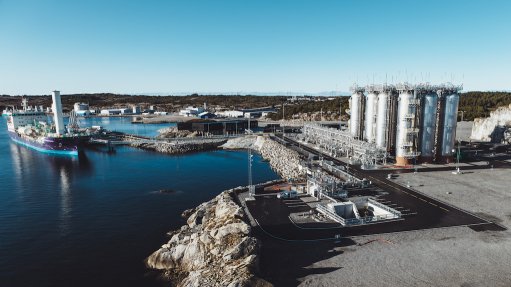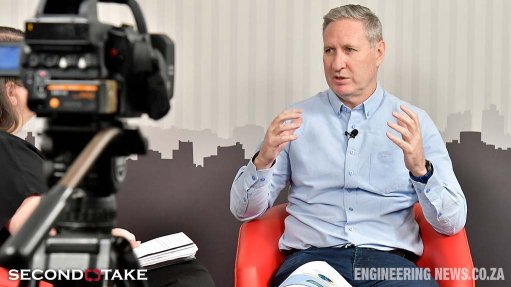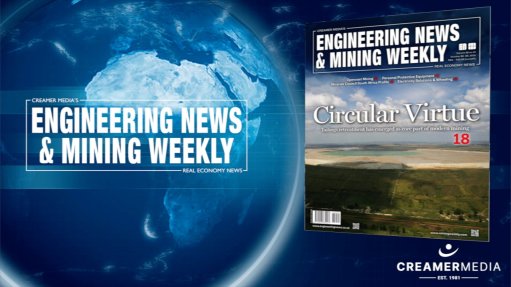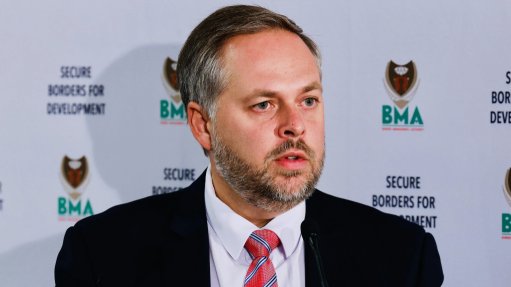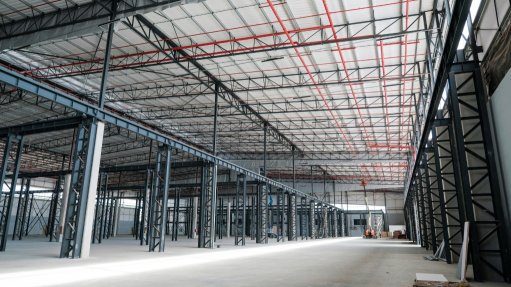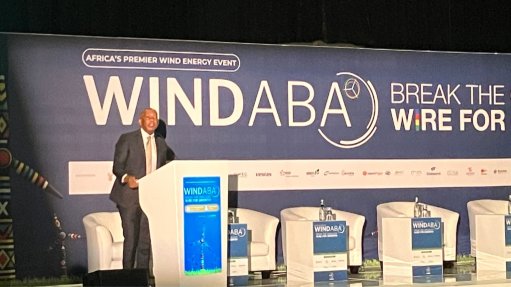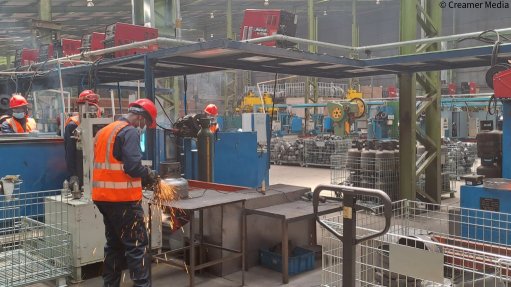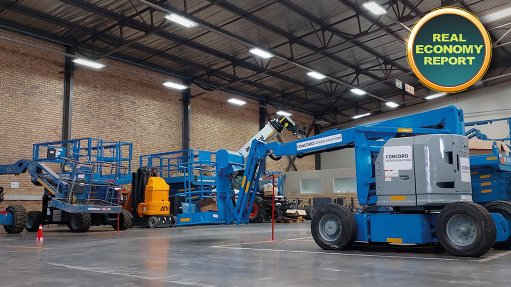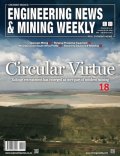SA ports operator outlines view on weight regulations at global event
Transnet Port Terminals (TPT) was invited to present at this year’s International Association of Maritime Economists (IAME) conference, which took place last month in Hamburg, Germany.
The joint presentation of TPT senior strategy manager Dr Darren Fraser and TPT compliance manager Mark Fearick at IAME reviewed and assessed the impact of international and domestic weight regulations of the South African port system.
Fraser tells Engineering News that the presentation analysed the operational, financial and commercial impact of three legal instruments: the international maritime treaty Safety of Life at Sea (Solas), National Road Traffic Regulations and the Legal Metrology Act.
“We concluded . . . that a plethora of weight regulations being imposed on terminal operators without due consideration of conflicting or complementary objectives during implementation can be counterproductive, expensive and burdensome for port users.”
While the intention of weight regulations to improve sea and road safety is welcomed, their linked impacts on vessel and vehicle transport have to be taken into consideration for the intended outcomes to be realised, Fraser states.
He points out that the most recent amendments of Solas “has different impacts depending on the approach adopted by industry stakeholders”.
Fearick notes that, while the treaty requires that containers be weighed and this has impacted on shipping companies owing to the cost of procuring weighing equipment and services, there have been no reported impacts on trade and economic activity.
“In some cases, port operators were already performing weighing activities and, as such, where a shipper elects to use the verified gross mass obtained by that port operator, there is a minimal impact on the relevant local economy,” Fearick explains.
The IAME hosts some of the most prominent scholars and industry practitioners worldwide who have an interest in maritime transport, interpreted in the broadest sense to include ports, shipping and hinterland transport. IAME members come from a variety of research backgrounds, primarily economic and management, but also logistics, finance, engineering and social sciences.
The association’s main event is its yearly conference, held at a different location every year. It is an opportunity for the international scientific community to discuss current research topics and contribute to the development of maritime economics and management as an independent discipline.
The theme for this year’s IAME conference was ‘The maritime transport of the future: the role of innovation uptake, sustainability and availability of shipping finance’. Port and terminal finance, strategic port developments, security when shipping and at ports, as well as environmental issues in the maritime sector, were also discussed.
Fraser notes that discussions of particular interest were big data applications in shipping and ports, which centred on container terminal operations’ critical need to deliver efficiencies, as well as hinterland transportation and seaport competitiveness, given the regionalisation of trade in Southern Africa.
Fraser highlights that New York-based Hofstra University global studies and geography professor Dr Jean-Paul Rodrigue’s examination of the disadvantages of scale in container maritime shipping. Rodrigue’s presentation specifically uncovered how economies of scale from larger vessels benefit container shipping along the maritime leg, while, to some extent, these benefits from megaships had, in his view, limited benefit for ports and hinterland transportation leg.
Rodrique further noted that the ongoing discrepancies between maritime and port terminal operations, as well as hinterland distribution and supply chain management, were emerging, owing to a growing scale mismatch, besides other aspects.
“This is also true to some extent in the South African context,” says Fraser.
He explains that, as South Africa’s port terminals increase their capacity to handle larger vessels, “the broader supply chain will become under increased pressure to cope with greater cargo parcel sizes over fixed cargo transfer periods. If not appropriately managed, the result would be increased congestion and/or higher handling costs”.
Article Enquiry
Email Article
Save Article
To advertise email advertising@creamermedia.co.za or click here
Comments
Press Office
Announcements
What's On
Subscribe to improve your user experience...
Option 1 (equivalent of R125 a month):
Receive a weekly copy of Creamer Media's Engineering News & Mining Weekly magazine
(print copy for those in South Africa and e-magazine for those outside of South Africa)
Receive daily email newsletters
Access to full search results
Access archive of magazine back copies
Access to Projects in Progress
Access to ONE Research Report of your choice in PDF format
Option 2 (equivalent of R375 a month):
All benefits from Option 1
PLUS
Access to Creamer Media's Research Channel Africa for ALL Research Reports, in PDF format, on various industrial and mining sectors
including Electricity; Water; Energy Transition; Hydrogen; Roads, Rail and Ports; Coal; Gold; Platinum; Battery Metals; etc.
Already a subscriber?
Forgotten your password?
Receive weekly copy of Creamer Media's Engineering News & Mining Weekly magazine (print copy for those in South Africa and e-magazine for those outside of South Africa)
➕
Recieve daily email newsletters
➕
Access to full search results
➕
Access archive of magazine back copies
➕
Access to Projects in Progress
➕
Access to ONE Research Report of your choice in PDF format
RESEARCH CHANNEL AFRICA
R4500 (equivalent of R375 a month)
SUBSCRIBEAll benefits from Option 1
➕
Access to Creamer Media's Research Channel Africa for ALL Research Reports on various industrial and mining sectors, in PDF format, including on:
Electricity
➕
Water
➕
Energy Transition
➕
Hydrogen
➕
Roads, Rail and Ports
➕
Coal
➕
Gold
➕
Platinum
➕
Battery Metals
➕
etc.
Receive all benefits from Option 1 or Option 2 delivered to numerous people at your company
➕
Multiple User names and Passwords for simultaneous log-ins
➕
Intranet integration access to all in your organisation







